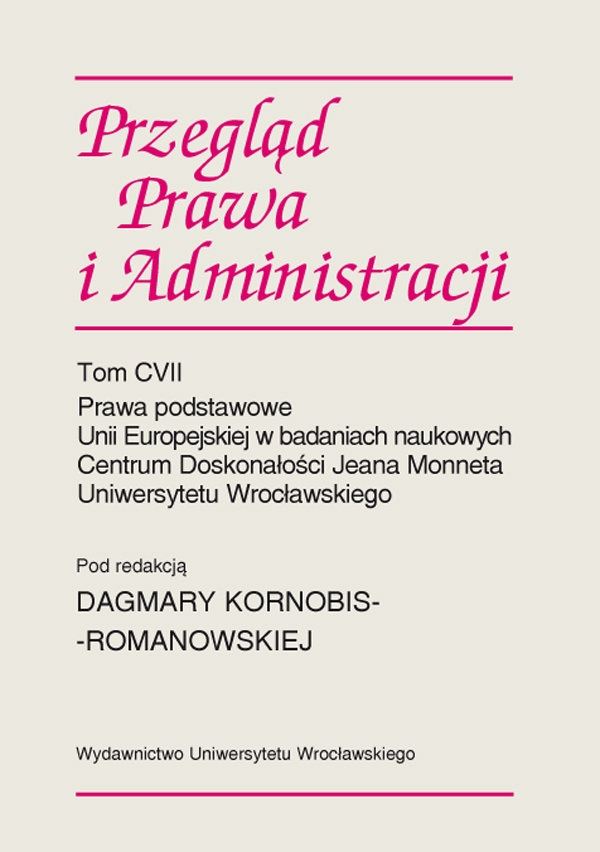

OCHRONA PRAW JEDNOSTKI W UE

FREE MOVEMENT OF STUDENTS IN THE EUROPEAN UNION — RIGHT TO EDUCATION, ACCESS TO EDUCATION AND ACCESS TO GRANTS IN THE TRANSNATIONAL CONTEXT
The right to education, recognised by Article 14 of the Charter of Fundamental Rights of the European Union must be analysed and interpreted in the light of the previous evolution of EU law in this domain, as well as of the preceding jurisprudence of the Court of Justice. In the present state of EU law there is no doubt that access to higher education as well as access to student grants or loans falls within the scope of EU law. Therefore the article contains the overview of where EU law stands at present in the domain of mobility of students. The main two fields of interest are: access to education of migrant students, when they move from their home Member State to a host Member State in order to undertake studies, as well as access to social benefits, namely student grants or loans, which enable or make easier the mobility of students. The second field of interest concerning student grants or loans is divided into two parts: the first concerns access to grants or loans accorded by the host Member State to migrant student; the second concerns access to grants or loans accorded by the home Member State to its own citizens in order to encourage them to study abroad. The analysis, on the one hand, reveals that the scope of application of EU law to the situation of migrant students, due to the jurisprudence of the CJEU, is very wide, which means the wide scope of rights accorded to students and the narrow scope of freedom left to the Member States. On the other hand, the analysis leads to a conclusion that the case of migrant students is an exemplification of the challenges faced by the Union in the field of free movement, in particular the pressure to limit the social benefi ts for EU citizens exercising their right to free movement.